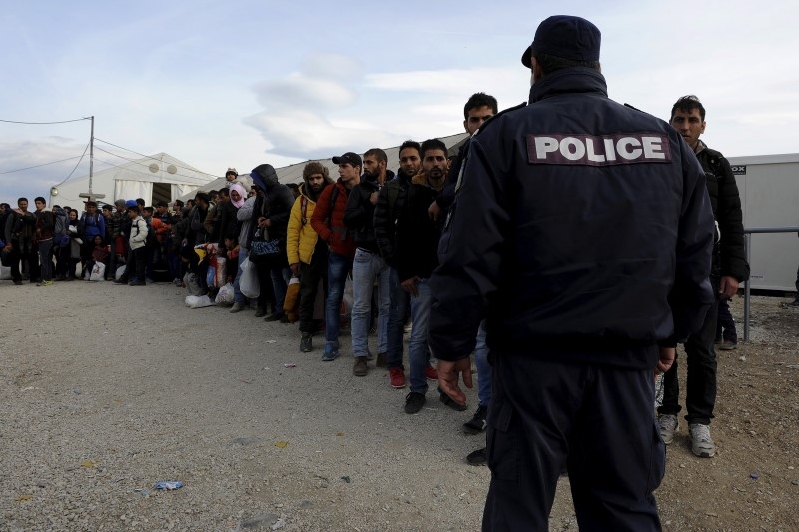
The heads of several U.S. refugee advocacy and resettlement agencies on Tuesday called on the nation's governors to back down from efforts to close their states to new refugees from Syria in the wake of Friday's deadly Paris attack.
The calls came in the wake of statements of varying intensity by the mostly Republican governors of 25 states who say they are worried about people resettling in their states after fleeing Syria's four-year civil war. The governors cited concerns that some refugees could be associated with Islamic State militants.
"If ISIS had hoped that their attacks in Paris would provoke the United States and its allies to react with small-minded panic, some governors are helping them get their wish," said Linda Hartke, president of Lutheran Immigration and Refugee Services, one of nine agencies contracted by the U.S. State Department to resettle refugees.
"This is not an either/or situation," Hartke said on a conference call with reporters and the heads of three other refugee advocacy groups. "The United States can continue to welcome refugees while continuing to ensure our own security."
Lavinia Limon, chief executive of the U.S. Committee for Refugees and Immigrants, noted that most refugees, which are referred to the United States by the UN High Commissioner for Refugees, undergo about two years of security and background checks before they are allowed to enter the United States and that none have committed terrorist attacks.
"The millions of tourists and businessmen that come in every year do not undergo even remotely the level of checks that refugees do," Limon said.
Governors over a wide swath of the United States, from Idaho to Florida, said they were not confident that existing programs to screen potential refugees would exclude those who might carry out attacks. A Syrian passport found near the site of one of the Paris attacks indicated that its holder had entered the European Union through Greece, raising concerns that an attacker had entered with a crowd of refugees.
Kevin Appleby, director of migration policy for the U.S. Conference of Catholic Bishops, said an estimated 4 million people have fled the fighting in Syria, with the United States having taken in about 2,200.
"We haven't even come close to the burden-sharing that we need to be at," Appleby said. "We call upon all the governors, all our officials in Congress to come together and look at real solutions to this crisis and not to politicize it."






